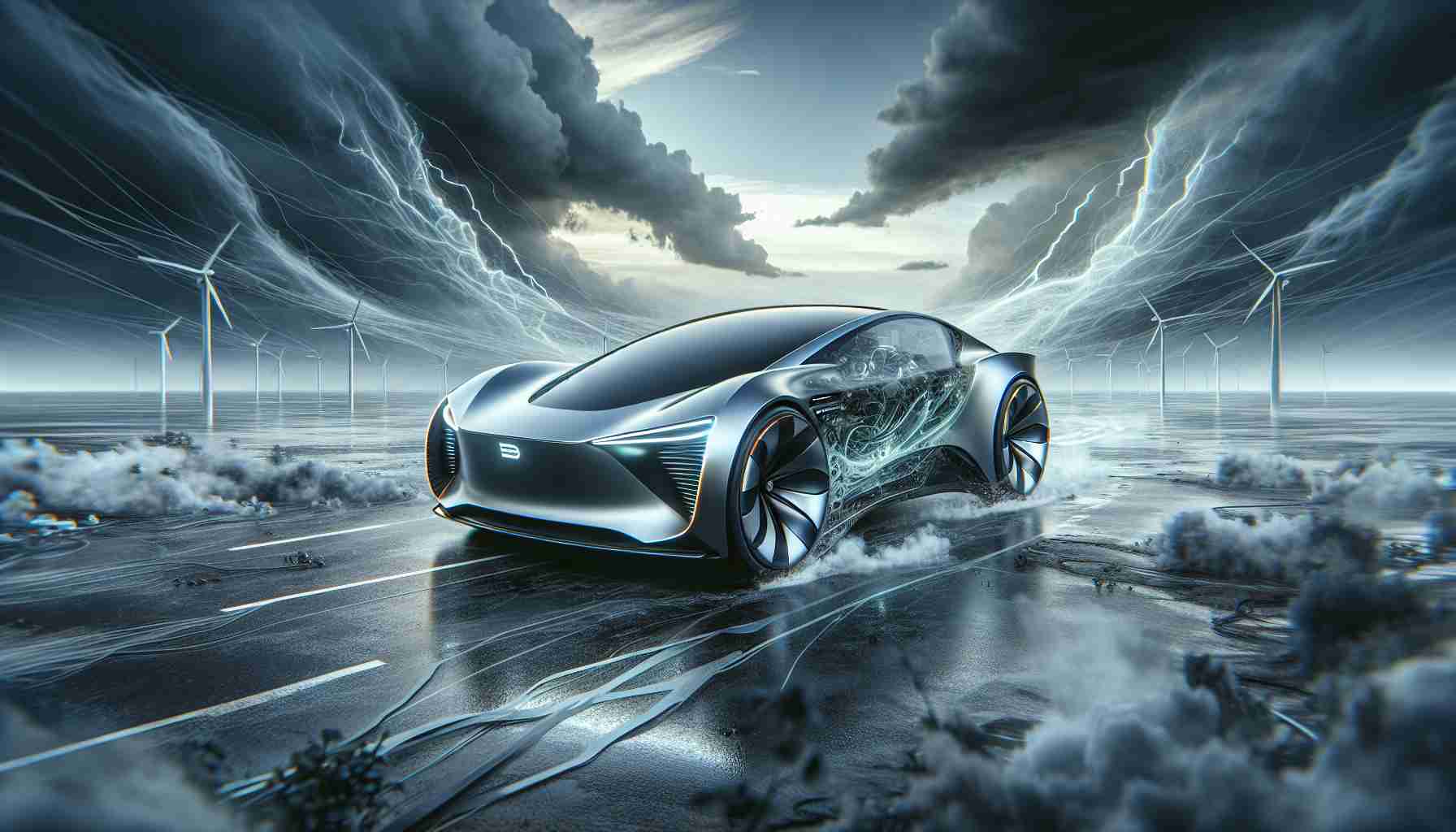- Lucid Motors is renowned for its luxury electric vehicles like the Air sedan and Gravity SUV, though it struggles with market share and investor confidence.
- Despite an increase in EV sales, Lucid’s share price fell by 72% since 2021, with significant financial losses casting shadows on future stability.
- Production challenges, including just over 10,000 vehicles produced, necessitate cutting-edge cost-saving strategies and improved efficiency.
- The company’s vehicles are ineligible for crucial tax credits, complicating efforts to attract buyers.
- Consideration of alliances with established automakers presents a potential avenue for revitalization, but specifics are undisclosed.
- Lucid has financial reserves projected to sustain the company until 2026, allowing time to stabilize operations.
- Innovations in shared components between vehicle models aim to reduce costs while maintaining luxury appeal and extensive driving range.
- The upcoming year is crucial for Lucid’s focus on profitability and strategic partnerships, setting the stage for its future direction.
Lucid Motors, the luxury electric vehicle trailblazer, navigates a winding road of challenges amidst stunning innovations. Known for its award-winning Air sedan and buzz-worthy new Gravity SUV, Lucid captures the imagination but struggles to capture market share. Despite a 7% uptick in electric vehicle sales last year, Lucid’s share price has plummeted by 72% since its 2021 debut, shaking investor confidence.
The financial landscape is rocky, with fourth-quarter revenues of only $200 million overshadowed by losses nearing a billion dollars. Stalled production, limited to just over 10,000 vehicles, underscores the urgent need for cutting-edge cost-saving measures and heightened production efficiency. The company’s high-end models miss out on tax credits essential for enticing buyers, adding to the pressure.
Lucid stands at a crossroads, contemplating potential partnerships with established automakers—a move that could breathe new life into its operations, although details remain under wraps. Yet, it’s not all gloom; Lucid has a financial cushion to last until 2026, providing a crucial window to stabilize.
Amidst these trials, Lucid is innovating with shared components between the Air and Gravity models, aiming to streamline costs and production. The luxury features—such as advanced driver-assistance, spacious interiors, and over 500 miles of range—keep demand alive among high-end EV enthusiasts.
As Lucid Motors sails through turbulent times, focusing on profitability and strategic alliances could chart a new course. For eager investors and EV enthusiasts, the next year will be pivotal. Will Lucid harness the storm or be swept away? The journey is far from over, and the stakes couldn’t be higher.
Lucid Motors: Can Innovative Luxury Drive Resurgence in the EV Market?
Lucid Motors continues to make headlines with its luxurious electric vehicles (EVs) despite facing significant challenges. With the award-winning Air sedan and the anticipated Gravity SUV, the company aims to push the boundaries of EV innovation. However, financial and market hurdles have made capturing market share a complex task. Let’s explore the most pressing questions surrounding Lucid Motors in its quest for success.
What Innovations is Lucid Motors Bringing to the EV Market?
Lucid Motors is renowned for its cutting-edge technology and luxurious features. The Air and Gravity models boast:
1. Advanced Driver-Assistance Systems: These include features that provide partial automation, ensuring safety and a seamless driving experience.
2. Extended Range: Lucid vehicles offer over 500 miles on a single charge, setting a high bar for long-range EVs.
3. Shared Components: The strategic use of shared components between models helps reduce manufacturing costs and streamline production.
These innovations offer a strong competitive edge in the high-end EV market.
How is Lucid Motors Planning to Overcome Financial Challenges?
Lucid Motors reported low revenues and significant losses during the last fiscal quarter. To counteract these challenges, the company is considering:
1. Strategic Partnerships: Collaborations with established automakers could provide the necessary infrastructure and experience to boost Lucid’s market position.
2. Cost-Saving Measures: Streamlining production through shared components is a major focus to improve cost-efficiency.
3. Financial Cushion: The company has enough financial resources to support operations until 2026, allowing time to stabilize.
While the exact details are forthcoming, these strategies could potentially revitalize Lucid’s financial standing.
What Are the Main Challenges Facing Lucid Motors?
Despite their luxury appeal, Lucid Motors faces several challenges:
1. Market Share Struggles: While EV sales are rising, Lucid’s market share remains small, with stock prices declining significantly since 2021.
2. High-End Tax Credits: The absence of tax credits for high-end models makes Lucid’s offerings less accessible to a broader audience.
3. Production Issues: Limited production output highlights a need for efficiency improvements to meet consumer demand.
These challenges underscore the importance of strategic planning and innovation in securing Lucid Motors’ future.
As Lucid navigates these turbulent waters, maintaining innovative leadership in luxury EVs is vital. The coming years will determine whether Lucid Motors can capitalize on its innovations and strategic partnerships to climb the ranks of the EV industry.
For more details about Lucid Motors and its innovations, visit the official site at Lucid Motors.


















